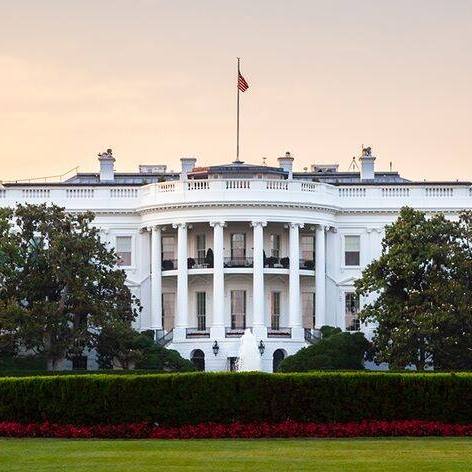News
As Myanmar Muslims flee crackdown, US is wary of involvement
WASHINGTON — Don’t expect the United States to step in and resolve what is increasingly being described as an ethnic cleansing campaign against Myanmar’s Rohingya Muslims.
Not wanting to undermine the Asian country’s democratic leader, the U.S. is cautiously criticizing what looks like a forced exodus of more than a quarter-million Rohingya in the last two weeks as Myanmar’s military responds with hammer force to insurgent attacks.
But neither Trump administration officials nor lawmakers are readying sanctions or levying real pressure on Aung San Suu Kyi’s government. A bill making its way through Congress seeks to enhance U.S.-Myanmar military co-operation.
“Further normalization of the military-to-military relationship with Burma is the last thing we should be doing right now,” said Walter Lohman, Asia program director at the right-leaning Heritage Foundation. “What a terrible signal to be sending.”
Human rights groups are equally appalled. The U.N. says 290,000 Rohingya have fled from Myanmar, the country also known as Burma, into neighbouring Bangladesh since Aug. 25. It is the biggest flight of the long-suppressed minority in a generation. The Rohingya are denied citizenship in Myanmar, regarded by majority Buddhists as illegal immigrants although many have lived in the ethnically diverse Southeast Asian nation for generations.
Rohingya refugees packed into camps in Bangladesh are becoming desperate. Fights are erupting over food and water. Vivian Tan, speaking for the U.N. refugee agency, said new arrivals are setting up spontaneous settlements along roadsides or on any available patches of land.
“We are seeing the mushrooming of these very flimsy shelters that will not be able to house people for too long,” she said.
The U.S. Holocaust Memorial Museum, which has previously warned of the risk of genocide in Myanmar, says the widespread destruction of homes and villages suggests “an effort to ethnically cleanse the region of its Rohingya population and to prevent their eventual return.”
Refugees International accuses the military of blocking life-saving aid and of committing rights abuses, “which we believe amount to ethnic cleansing and crimes against humanity.” It called for re-imposition of sanctions against military officials, such as visa bans and asset freezes, and international accountability for officers implicated in wrongdoing.
Although the U.S. has long led the international effort to address human rights abuses and bring democracy to Myanmar, the prospects of Washington leading a new pressure campaign appear slim.
U.S. officials are wary of undermining the weak civilian government of Suu Kyi, which took office last year, ending five decades of ruinous army rule. The military remains politically powerful and oversees security operations, but Suu Kyi is still seen by Washington as key to sustaining civilian rule and eventually addressing the Rohingya’s long-term grievances. Last year she invited an international commission led by former U.N. chief Kofi Annan to help her government address the sectarian tensions.
Another obstacle: Re-imposing even limited sanctions on abusive military officials would probably require new legislation or executive action.
In the past five years as Myanmar took steps toward democracy, President Barack Obama and Congress almost entirely waived or ended the once-formidable array of U.S. restrictions.
Myanmar’s transition was a priority for Obama and a prized foreign policy achievement. President Donald Trump has shown little interest in getting involved.
Asked if Trump was concerned about Myanmar’s violence, White House press secretary Sarah Huckabee Sanders said the president was “aware of the situation.” She said Friday she didn’t know if Trump has spoken to Suu Kyi since becoming president.
U.S. diplomats are more engaged. U.N. Ambassador Nikki Haley said in a statement Friday that Washington is “deeply troubled” by reports of attacks against innocent civilians.
The U.S. Embassy in Yangon is discussing the situation with civilian and military authorities, and calling for an end to violence and access for humanitarian groups and journalists, the State Department said. Lack of access has made it hard to verify the situation on the ground.
But the department has indicated new sanctions aren’t being prepared on a nation it now considers a “partner,” not an adversary.
“As partners now, we can encourage, we can facilitate, we can assist,” said Patrick Murphy, a senior U.S. diplomat for Southeast Asia. “That’s what we’re trying to do.”
Gentle persuasion doesn’t appear to be working.
Republican and Democratic lawmakers, traditionally in the vanguard of Myanmar policy, have denounced the military’s conduct and strongly urged intervention by Suu Kyi, a Nobel Peace laureate who has courted unprecedented criticism for dismissing the crisis as a misinformation campaign.
Many high-level officials have talked to her, including U.N. Secretary-General Antonio Guterres, said one U.N. Security Council diplomat, speaking on condition of anonymity because of the sensitivity of the issue. As for what the Security Council might do next, the diplomat said there is no decision.
“I know the Chinese do not favour anything more than a repeat of what we’ve done before, but the situation might demand that,” the diplomat said.
In a letter to Suu Kyi, Rep. Ed Royce, the House Foreign Affairs Committee’s Republican chairman, said atrocities against Rohingya “must end” or bilateral relations will be affected. Republican Sen. John McCain urged Suu Kyi — who spent nearly 15 years under house arrest — to condemn atrocities Rohingya have suffered at the hands of the same military that long oppressed her.
Beneath the rhetoric, there are wrinkles. A defence spending bill due to be taken up by the Senate in coming days could expand restricted ties with Myanmar’s military. A draft of the bill, opposed by some lawmakers, allows for courses and workshops on issues like maritime security, peacekeeping and combating human trafficking.
A separate resolution, with McCain as a co-sponsor, describes the situation in bleak terms.
“Brutal and methodical reprisal by the Burmese military on villages” has been carried out, it says, “with helicopters firing on civilians, razing villages with petrol bombs, and front line troops cutting off families’ escape routes.”






















